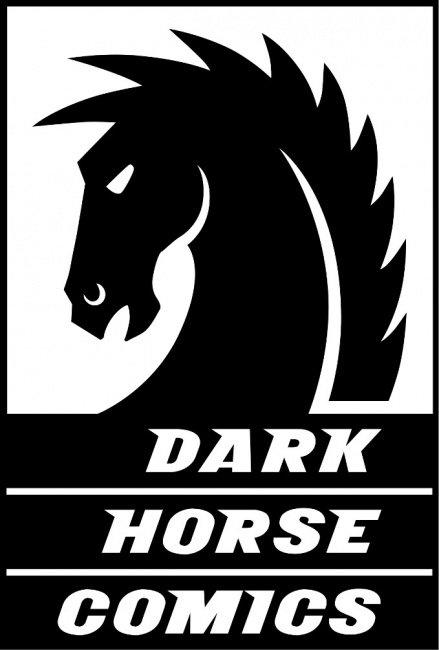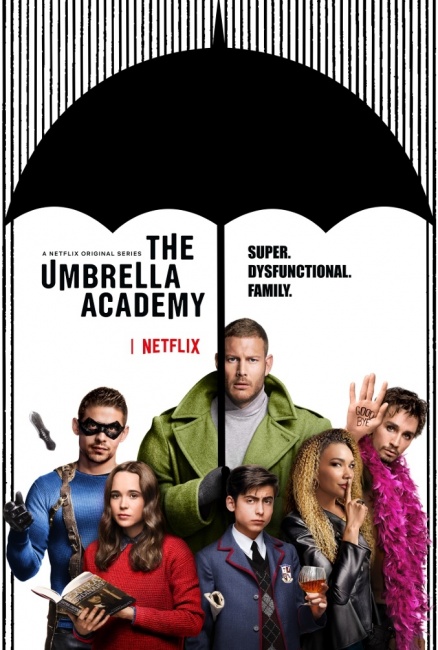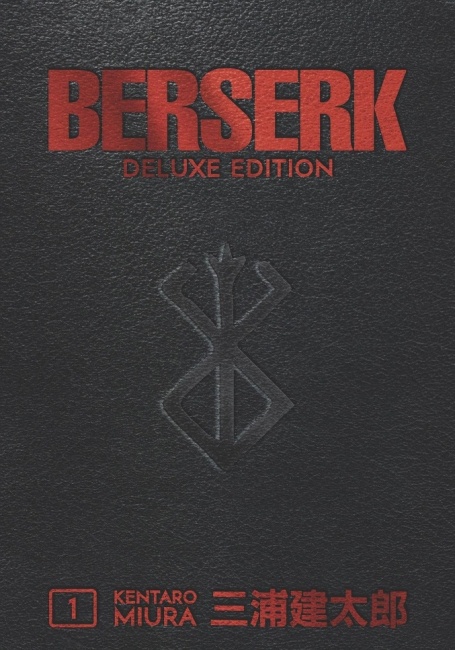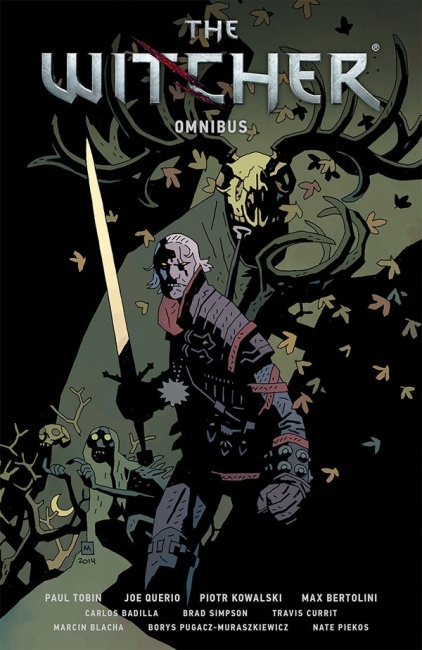In the closing days of 2019, we caught up with Dark Horse Comics CEO Mike Richardson for a wide-ranging interview. In Part 1, we talk about the comics and graphic novel market, Dark Horse shows in the pipeline, the impact of Dark Horse’s new investor, and key content areas for Dark Horse. In Part 2, we talked about Dark Horse initiatives to help comic stores expand into growth areas, the future of the comic store, the impact of the streamers, and Dark Horse plans for 2020.
ICv2: Mike, we're here at the end of 2019. What’s your evaluation of the comics and graphics novel market at this point in time?
Mike Richardson: Over-all it's good; the direct market is soft. I think that most retailers are focusing on Marvel and DC, although we have our hits. We had a good year, but we find most of our sales in trades and book market now. That's the large proportion of our business now, not through any intention, it's just the way the market's gone. For retail, it was a soft year, although towards the end of the year, we're trending up.
You're talking about TFAW [Things from Another World, the retail chain] specifically?
Yeah, TFAW is trending up.
The film business is killing it right now. We have three series going right now. We have just finished shooting season two of Umbrella Academy. We're shooting in Toronto. We're shooting Resident Alien with Alan Tudyk in Vancouver, BC; and we're shooting Coyote with Michael Chiklis down in Mexico, all shooting right now. We have three more projects that have been picked up by Netflix. We'll announce them next year [2020].
Beyond that we’ve got several other projects that we'll announce that are going forward at the same time. Look, content is being sought after, especially with the introduction of all the streaming services. We have a lot of content, and that's really killing it right now.
What did Dark Horse do in 2019 in terms of number of [physical product] releases, versus 2018?
I think it was roughly similar. I think we're probably up in trades and art books. I think we're definitely up in art books, off the top of my head, but roughly similar.
You talked about strength in the market for book format products. Has your mix been shifting that way from periodicals?
From periodicals to trades. Over the years, we've trained our readers that our comics generally come out in four or five‑issue arcs, and they go to trade. When times are tough, people will choose to buy one or the other. If you go to an older reader, they choose the trades: book on a shelf, rather than a comic in a box. That’s the trend for us, because our trade numbers continue to climb and continue to be a larger part of our business than the periodicals.
As you know, periodicals, they're $3.99 now, in some cases, $4.99. We don't have any $4.99 traditional comics yet, but they've come out. The $4.99 format is starting to hit the market. The costs keep going up.
The tariffs didn't help. We ate it in 2019; hopefully, they'll be gone in 2020.
You have some printing in China?
Yeah, we're still printing in China at this point. Look, we'd love to print here in the States, but it's still cheaper, even with the tariffs, over there. You fight a financial struggle as it is with periodicals, with the way the sales trend in periodicals continues to be.
This interview is taking place about a year since Dark Horse took investment from Vanguard Visionary Assets (see “Richardson Retains ‘Large Chunk’ After Chinese Investment in Dark Horse”). We wanted to check back in on some of the things you talked about at the time of the acquisition. One was that you said the investment would allow you to expand media development. You mentioned a bunch of projects that you're working on. Are those related to the new investment?
Yeah, we have about six projects that we're working on right now that are related to the investment. Of course, the speed on that has been slowed down by the tariffs and by what's going on over there.
We still have a great relationship. We're still enthusiastic. Media tended to be their initial primary interest, but some of that interest has spilled over into publishing, retail, and product.
You had mentioned expansion of retail as one of the goals of the new investment. Have there been any developments there?
There hasn't been here; they've been focused over on the China side. Again, until things clear up over there, probably staying about the same mode they are right now.
You also mentioned access to new markets, specifically China. Is anything changing there?
Yes. We've done a number of deals, and we've begun introducing product in an attempt to build the Dark Horse brand over there. We already had some awareness, they found, and now they're working on that to build the awareness over there. We have had a number of products that we've licensed into the country.
Then we wanted to drill down a little bit on some of the Dark Horse content here. One of the areas that we’re interested in Berger Books. You're about two years into that new imprint. What's your evaluation of how that's going?
We're really happy with it; I think Karen's a great addition. She brings a variety of books that generally we don't see here; she has access to the creative community in New York. That brings a lot of talent that we might not otherwise have access to. It's worked out great, and she's created some great books.
Dark Horse was one of the earliest publishers in the manga business here in the States and continues to publish. I think your biggest manga hit this year was older material, the repackaging of Berserk. Could you talk a little bit about your evaluation of the status of the manga market and what you're doing there?
It's great. We just acquired a number of new licenses. We're pretty excited. We're having fun releasing some of the ‑‑ what should we say, omnibi ‑‑ omnibuses, whatever you want to call them. Omnibi. Is that really a word?
It is on our site.
OK. [laughs] I think it was invented by the comics market. We used to use it, but we didn't know if it made any sense. Anyway, we have a number of those books coming out. Berserk has always been one of our strongest manga, so it makes sense that the big book would do well.
We have plans for more of those types of books, and we have a whole new slew of manga projects that we've acquired, licenses we've acquired.
What's your sense of the overall manga market? The numbers show it's been steadily increasing for the last five years. Not at a huge pace, so maybe not to where it was in the mid‑00s, but what are you seeing?
We see slow but steady increase in the number of manga books that are being sold.
Another content area we wanted to ask about: Dark Horse has made a big investment on the gaming space. You've got your video game art books. You mentioned the Zelda books, but obviously, there's a lot of video game IPs that you're doing art books on. You've got The Witcher comics, and then on the tabletop side, you've got this Critical Role story that you're doing. Why do you see that as a fertile ground for investment, and what do you see as the future of that space?
t's interesting, because we've been doing that almost from the beginning. Way back in 1989 was the first deal we made with a game company. We see there's great content waiting to be developed, story‑wise, out there.
For 30 years we've been working with game companies to try and take those great games with all the great visuals (and often, with storylines less developed), to get involved with those companies and help create story for those particular properties.
Now, more and more, the game companies are taking control of the storylines. It's a comfortable place for us, and it's a great source of content. We've had very successful programs with them. We're working with these quite a few game companies, bringing their IP into the direct sales market and elsewhere.
Click here to go to Part 2.

On the Comics Market, TV in the Pipe, the New Investor's Impact, Key Content Areas
Posted by Milton Griepp on January 7, 2020 @ 11:18 am CT






